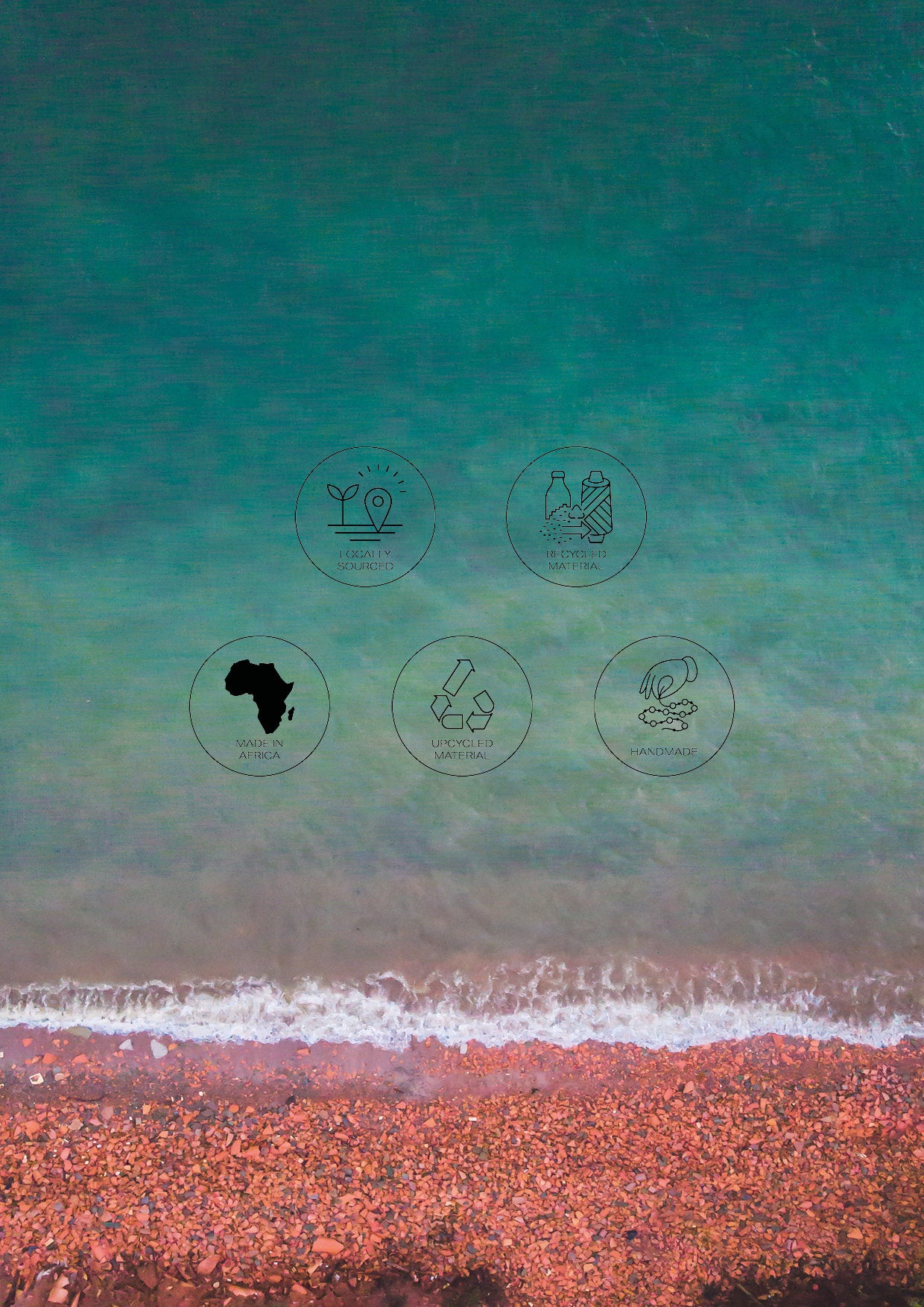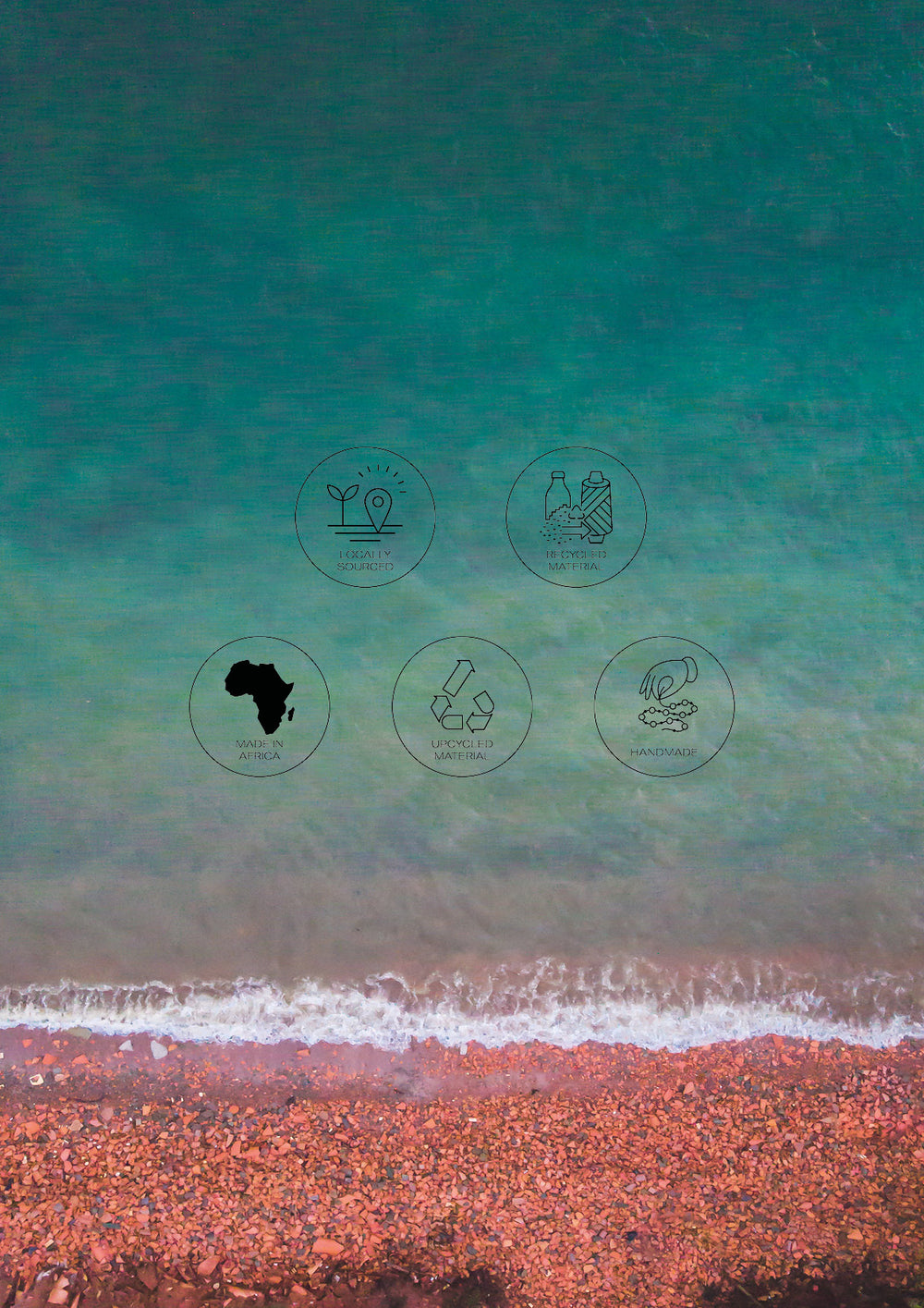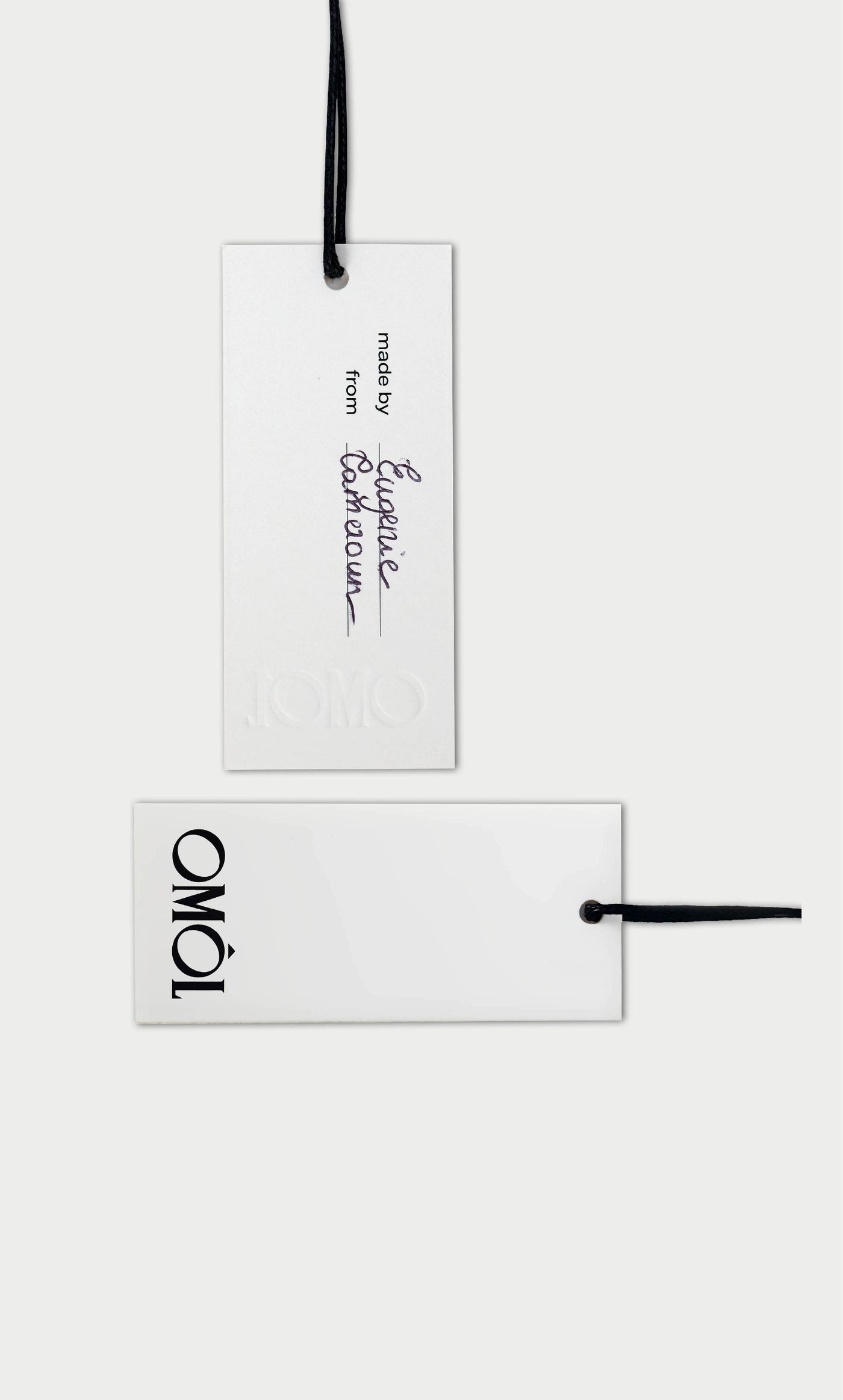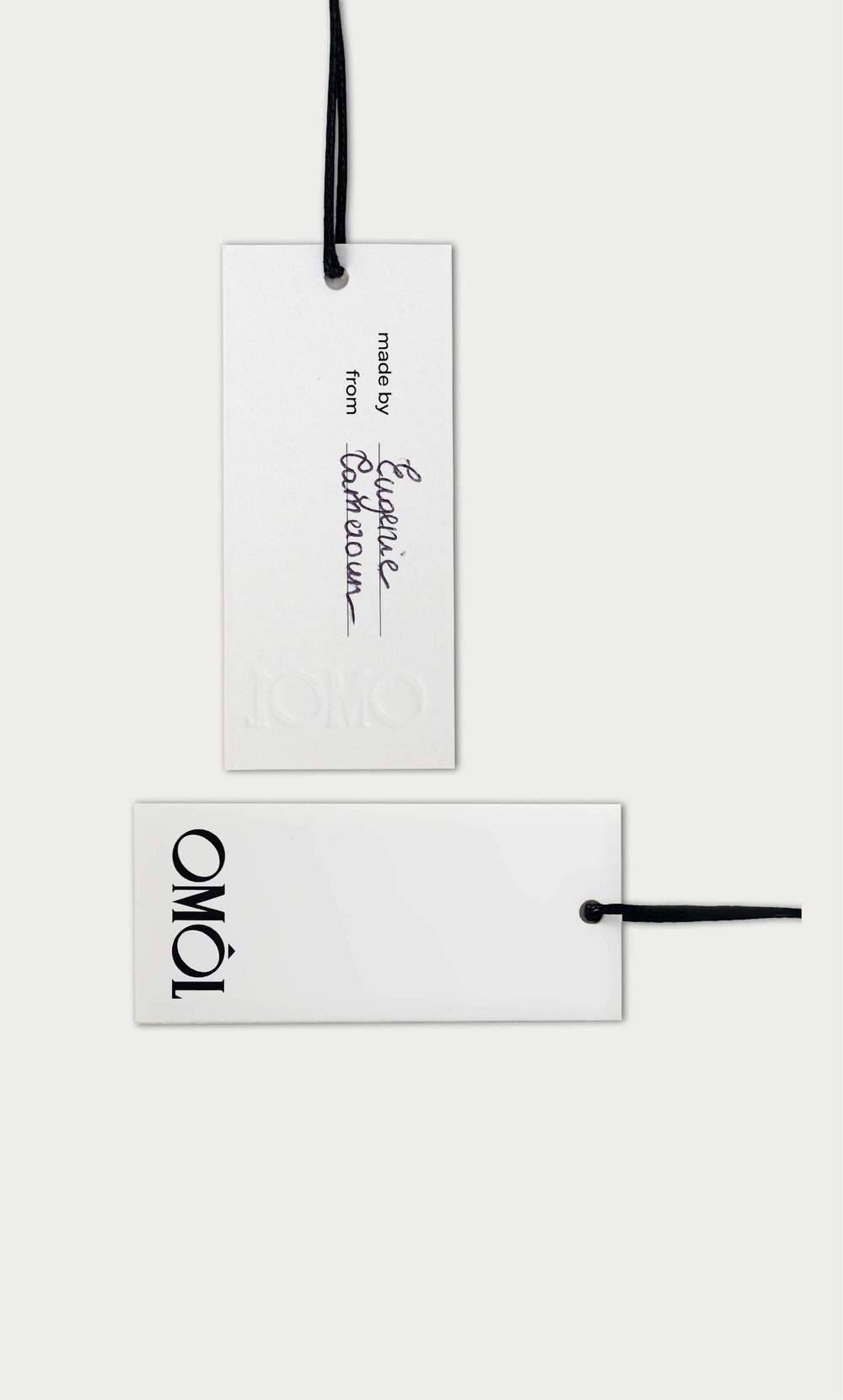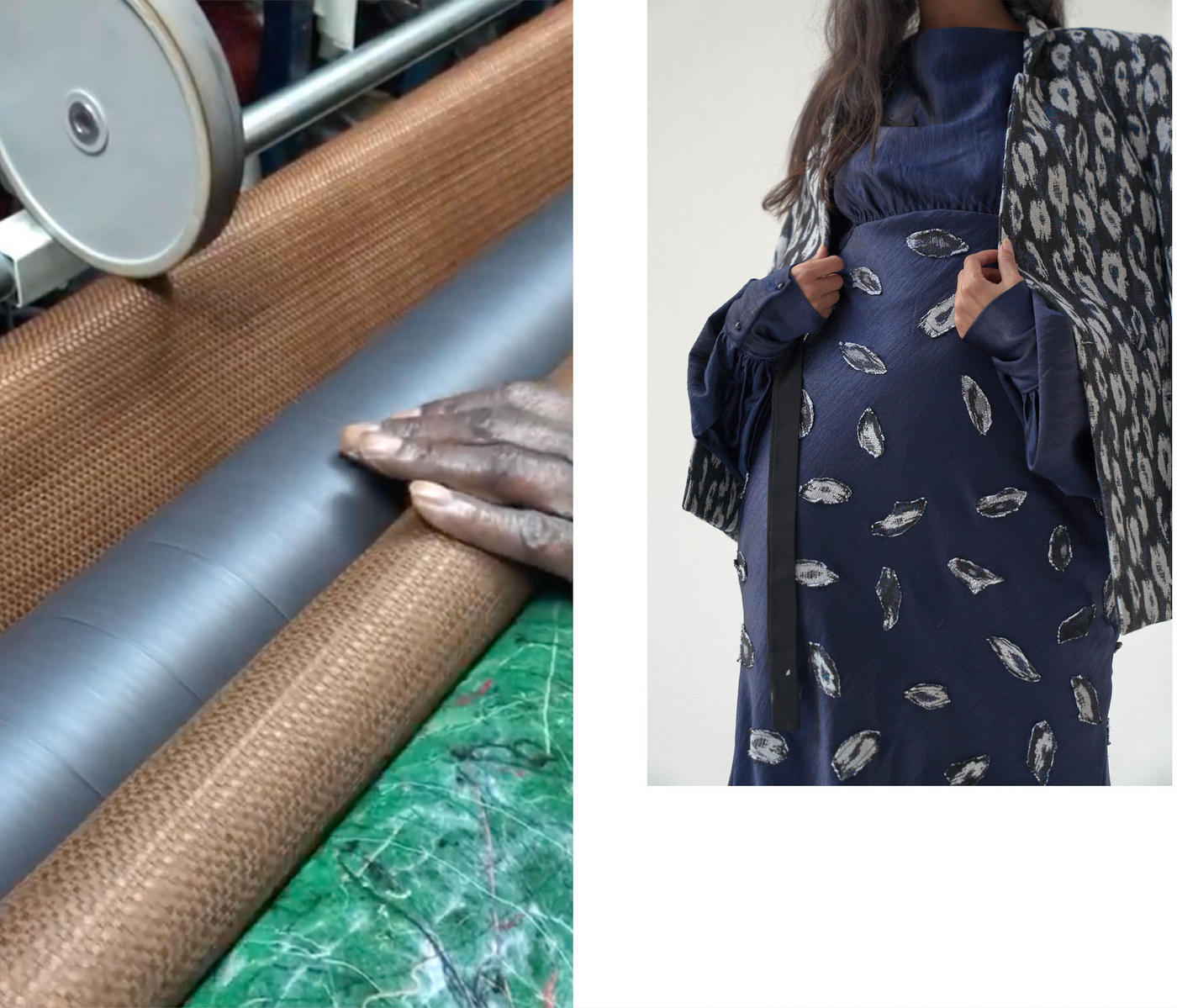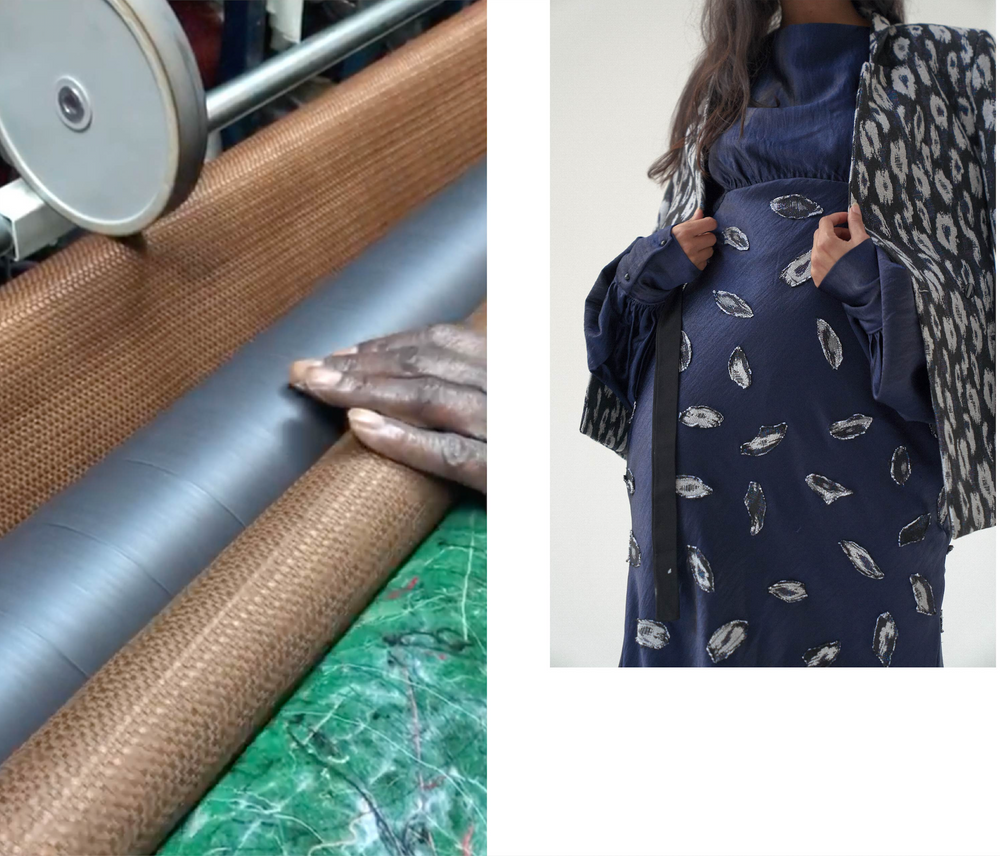SUS
TAIN
ABLE
“WE MADE YOUR CLOTHES”
We prioritize a fair treatment of our artisans and workers.
We are at the crossroads of traditional and modern Africa. It is in Cameroon that we establish our first workshops. We work with local talents in tailoring to develop our unique pieces.
Our team of craftsmen create pieces of garments they are proud of.Each of your clothes and accessories is signed by the artisan who crafted it.
Our end goal is to also produce in other countries of the continent and to apply that same ethical belief.
“A FABRIC THAT POLLUTES LESS IS ONE THAT ALREADY EXISTS”
We defend our sustainable and conscious vision for fashion. As simple as it is: for us, a fabric that pollutes less is one that already exists.
We source our fabrics and materials from end-of-line stocks all around the world and in local markets, to create small series of timeless designs.
OMÔL does not believe seasons or collections : notions that differ from one place to another in the world.
"THAT'S HOW WE KNOW WE ARE MAKING A CHANGE"
By choosing reusing instead of producing new we are all avoiding significant impact per meter purchased.
Since 2022, Omôl has partner with a Spanish textile plateform that focuses on circular fashion, this collaboration not only brings sustainability to our business model, but it helps us tackle the issue on transparency and assesment of our impact on the planet.
We keep in mind that our project can be improved and we remain on the lookout for sustainable and conscious solutions.
"WEAR YOUR CLOTHES LONGER"
We offer transeasonal designs in limited series that will stay in your wardrobe forever. We do not believe that the weather and the seasons should define your look, as the definition of season varies from one place to another.
Properly caring for your garments helps them to last a long time, conserve natural resources and keep textile waste out of landfills. Follow some easy steps on you cleaning labels to extend the life of your Omôl pieces.
Properly caring for your garments prolongs their life, conserves natural resources, and keeps textiles out of landfills. A recent study showed that wearing your garment twice as long reduces its climate impact by 49%.



